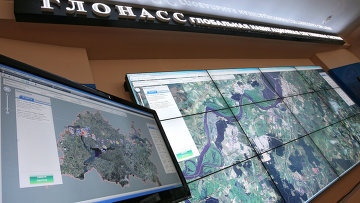MOSCOW, September 3 (RAPSI) - Three managers have been officially charged with embezzling money allocated for the GLONASS program, Investigative Committee spokesperson Vladimir Markin said Tuesday.
The Global Navigation Satellite System (GLONASS), which was officially launched in 1993, is a Russian counterpart to the US Global Positioning System (GPS). It provides data for real-time positioning and speed of surface, sea and air objects to within an accuracy of one meter.
The GLONASS program was initiated in the 1970s but underwent a radical revamp in 2001. The 24 satellites comprising the system were put into orbit by 2010, though only after several costly malfunctions and launch failures by carrier rockets. The program has cost 140 billion rubles ($4.2 billion) to implement to date, and its budget for 2012-2020 stands at a further 326 billion rubles ($9.8 billion).
The charges have been brought against George Kovkov, Deputy Director General of TsNIImash, the head research company of Russia's federal space agency; Alexander Chernov, chief of the company's Capital Projects Department; and Alexander Belov, Director General of one of the Federal Special Construction Agency's (Spetsstroy) departments. They may face up to 10 years in prison.
Construction of the GLONASS satellite navigation system control and support center in Korolyov, a town outside Moscow, began in June 2010 on the site used by TsNIImash. The center was supposed to hold equipment for collecting and processing the data supplied by the GLONASS global network.
The construction was financed by a federal program, with 1.050 billion ($31.6 million) allocated for the project.
It became clear by the end of 2010 that the estimates of the construction costs had been overstated, Izvestia daily reported earlier. An expert appraisal also revealed that the contractor had rigged the costs. The government did not allocate any additional funds, therefore construction was suspended in December 2011 when the Federal GLONASS Program for 2002-2011 ended. The construction of the building has never completed.
It inflicted 107 million ruble ($3.2 million) damage to the state, Markin said.
The Federal Security Service started looking into the unfinished building earlier this year. In January, the service asked TsNIImash to provide the construction documents for an inspection, which ended in April. The results were then forwarded to the Investigative Committee and a criminal case opened.



